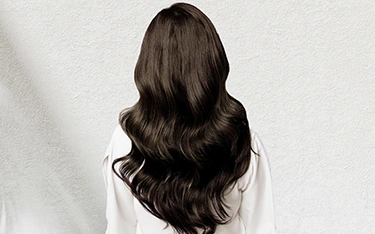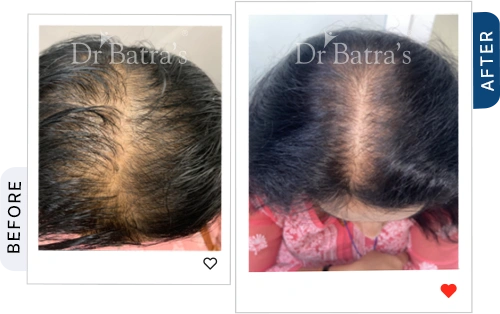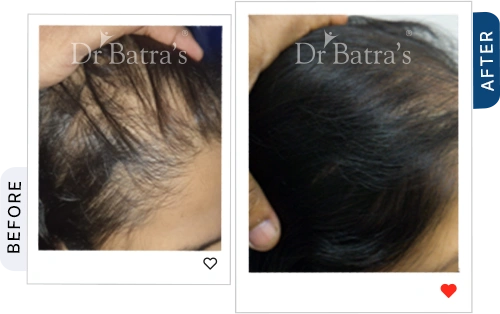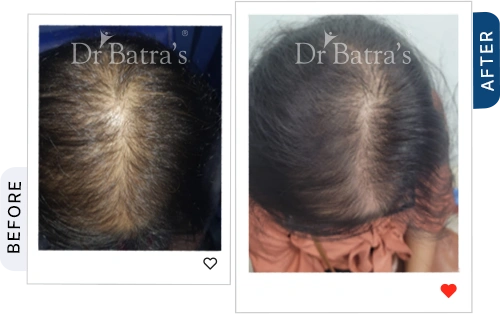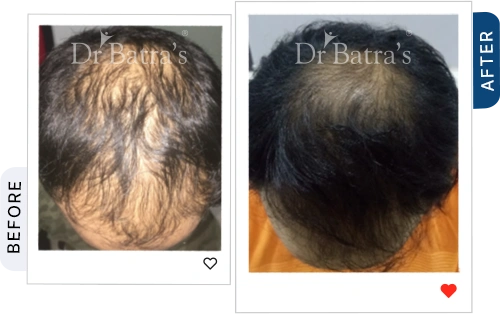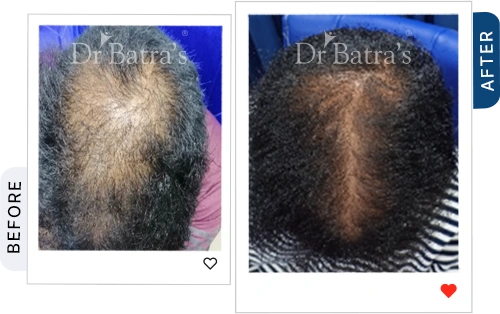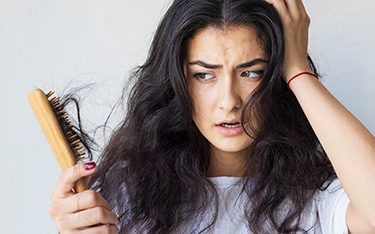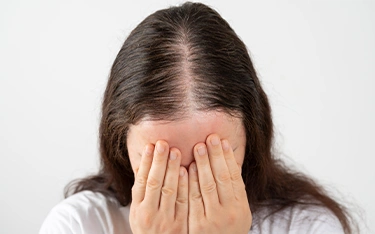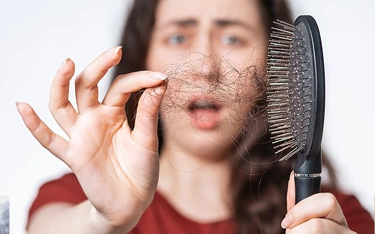Maintaining healthy, strong, and luscious hair requires more than just using the right shampoo. From scalp care tips to styling habits, your daily healthy hair routine plays a crucial role in your hair's overall health.
But are you unknowingly damaging your hair?
To help you get the best out of your healthy hair routine, we've put together expert hair care advice, including the top dos and don’ts you should follow, for stronger, shinier, and healthier hair.
10 Hair Care Dos: How to Keep Hair Healthy and Strong at Home
Healthy hair doesn’t just happen; it needs the right care daily. By following simple yet effective practices at home, you can strengthen your strands, learn how to prevent hair damage, and keep your scalp nourished. Here are 10 hair care dos you must follow.
1. Rule Out the Cause of Hair Fall
If you are experiencing unusual or excessive hair shedding, the very first step is to identify what’s causing it. Understanding the best way to stop hair fall begins with knowing the root triggers. Possible causes include:
- Nutritional deficiencies – lack of iron, zinc, or protein can weaken hair.
- Stress and anxiety – emotional stress impacts the hair growth cycle.
- Thyroid disorders – imbalances in thyroid hormones often trigger hair loss.
- Hormonal changes – pregnancy, PCOS, or menopause can affect hair health.
- Genetic factors – hereditary conditions like pattern baldness.
2. Check What Type of Dandruff You Have
Not all dandruff is the same; sometimes it’s a sign of another scalp condition. Following the right scalp care tips ensures you pick the right treatment and avoid unnecessary irritation.
- Seborrheic dermatitis- causes greasy flakes and red, itchy scalp.
- Scalp psoriasis – leads to thick, silvery scales and persistent flaking.
- Fungal overgrowth – Malassezia yeast can trigger chronic dandruff.
3. Take Care of Your Nutrition
Your diet directly influences how your hair looks, feels, and grows. Adding nutrition-rich foods is one of the simplest home remedies for strong hair, helping you build resilience and shine naturally.
- Iron-rich foods – spinach, lentils, beans, and pumpkin seeds to fight thinning.
- Biotin-rich foods – eggs, almonds, and walnuts for stronger hair shafts.
- Protein-packed foods – dairy, soy, and lean meats to build keratin (hair protein).
- Hydrating fluids – coconut water, infused water, and fresh juices for moisture.
4. Use a pH-Balanced, Natural Shampoo
Choosing the right shampoo can make or break your healthy hair routine. Avoid harsh chemicals and instead opt for a sulfate-free formula to support long-term strength.
- Maintain scalp’s natural balance.
- Retain hydration and prevent dryness.
- Keep strands soft, smooth, and less prone to breakage.
5. Manage Stress for Healthier Hair
Stress doesn’t just affect your mind; it also damages your scalp and hair. Managing stress is a natural home remedy for strong hair and helps in reducing hair fall.
- Sudden and severe hair fall.
- Early onset of grey hair.
- Flare-ups of scalp conditions, such as dandruff or psoriasis.
6. Massage Your Scalp Regularly
Regular scalp massages are among the most trusted home remedies for strong hair. They not only improve circulation but also nourish roots and support growth.
- Improve blood circulation to the scalp.
- Strengthen the roots and hair follicles.
- Stimulate growth and add shine naturally.
7. Use a Heat Protectant Before Styling
Learning how to prevent hair damage from heat is crucial. Always use protectant sprays or serums before styling.
- Curling irons
- Straighteners
- Blow dryers
8. Keep Hair Hydrated
Hydration is the secret to soft, bouncy, and manageable hair. Dry hair becomes brittle and prone to breakage, especially for people with high-porosity hair. Adding this into your healthy hair routine prevents breakage and frizz. Keep your hair hydrated with:
- Deep conditioning treatments – once a week.
- Leave-in conditioners or serums – for daily moisture.
Hydrated hair looks shinier, healthier, and is less likely to frizz.
9. Brush Your Hair Gently
Gentle brushing is the best way to stop hair fall caused by mechanical damage. To keep your strands safe:
- Use a wide-tooth comb to detangle.
- Start combing from the ends and work upwards.
- Avoid brushing wet hair, as it’s most fragile then.
- Gentle handling ensures stronger, smoother, and longer-lasting hair.
10. Use a Satin Pillowcase
Switching to satin pillowcases is one of the easiest scalp care tips to lock in moisture and reduce tangles.
- Retain natural oils and moisture.
- Reduce frizz, tangles, and breakage.
- Maintain smooth and shiny strands overnight.
A small lifestyle change that gives big results for your hair health!
10 Hair Care Don’ts: Avoiding Bad Hair Control Practices
From overwashing to using harsh chemicals, skipping conditioner, or brushing wet hair, knowing how to prevent hair damage is just as important as knowing what to do right.
- Don’t Over-Wash Your Hair
- Washing too often strips away the scalp’s natural oils.
- This makes hair brittle, dry, and prone to damage.
- Better alternative: Limit washing to 2–3 times a week.
- Always pick a mild shampoo that suits your hair type.
- Don’t Use Harsh Chemicals
- Products containing sulfates, parabens, and alcohol harm the hair cuticle.
- Long-term use can lead to thinning and breakage.
- Better alternative: Choose shampoos and conditioners with natural, gentle ingredients.
- Don’t Skip Conditioner
- Conditioner seals in moisture and shields the cuticle from damage.
- Skipping it leads to tangles, frizz, and breakage.
- Better alternative: Use conditioner every time after shampooing to lock in hydration.
- Don’t Brush Wet Hair
- Wet strands are fragile and snap easily when combed.
- Pulling through tangles increases split ends.
- Better alternative: Use a wide-tooth comb and detangle gently after hair is partially dry.
- Don’t Use Hot Water to Wash Your Hair
- Hot water strips away natural oils, leaving your hair dehydrated.
- Over time, it weakens strands and dulls shine.
- Better alternative: Rinse with lukewarm or cool water to maintain strength and shine.
- Don’t Tie Your Hair Too Tight
- Constant tight ponytails or buns stress hair roots.
- This can cause traction alopecia, hair loss from pulling.
- Better alternative: Opt for looser hairstyles or soft scrunchies.
- Don’t Use Styling Tools on Wet Hair
- Applying straighteners or curlers on wet hair burns the cuticle.
- This weakens the hair shaft permanently.
- Better alternative: Always air-dry or towel-dry before heat styling.
- Don’t Expose Your Hair to Direct Sunlight for Long
- UV rays break down hair proteins, causing dryness and colour fading.
- Prolonged exposure increases breakage and dullness.
- Better alternative: Protect your hair with hats, scarves, or UV sprays when outdoors.
- Don’t Overuse Hair Products
- Too much hairspray, gel, or mousse clogs the scalp and weighs hair down.
- Buildup leads to dull, greasy strands.
- Better alternative: Use styling products sparingly and only when needed.
- Don’t Skip Scalp Exfoliation
- A clean scalp encourages healthy hair growth.
- Neglecting exfoliation causes buildup, itchiness, and weak roots.
- Better alternative: Use scalp scrubs or clarifying shampoos once a week for balance.
Dr Batra’s® pro tip:
Healthy hair starts from within. Maintain a balanced diet, manage stress, and choose hair products suited to your scalp type for optimal hair growth
Why Choose Dr Batra's ® for Professional Hair Care Solutions?
At Dr Batra’s®, we offer personalised homeopathic treatments for hair fall that strengthen hair from the root. If you’ve already tried home remedies for strong hair but still face issues, our experts provide advanced solutions designed to complement your healthy hair routine.
- Detailed Hair Analysis: Our experts assess scalp health and hair type to recommend the right treatments.
- Natural & Gentle Care: Homeopathy provides side-effect-free solutions for hair loss, dandruff, and scalp conditions.
- Clinically Proven Results: With a 96.6% positive outcome rate, Dr Batra’s treatments are trusted by over 1.4 lakh patients.
- Holistic Approach: We integrate homeopathy with lifestyle modifications to ensure long-term hair health.
